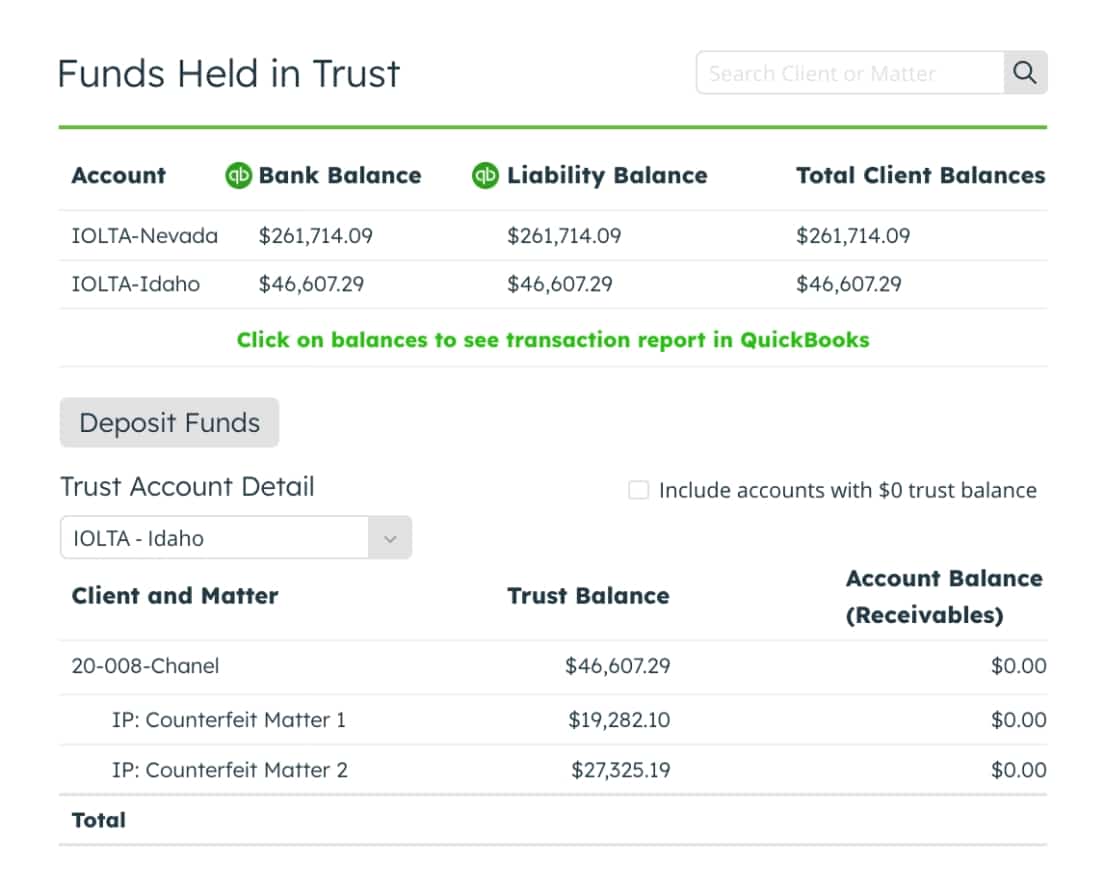
There are few lawyers who are going to tell you that they love doing administrative tasks.
Not only that, but in an industry where time is literally money, having an attorney focus any of their time away from working on a client’s case is going to be detrimental to both their productivity and the firm’s profitability.
This is where implementing electronic billing software is going to be a game changer for most law firms.
Key Takeaways
- In the ever-evolving landscape of the legal industry, technology continues to reshape the way law firms operate.
- Efficiency and accuracy are the cornerstones of any thriving law practice, and having a strong and easy-to-use electronic legal billing software system is going to make a significant difference in these areas.
- Knowing the key features that legal e billing software offers will help you determine your needs and what software system is going to work best for your law firm.
As technology continues to evolve, law firms of all sizes and concentrations are discovering the powerful tools e billing software can provide in order to help enhance their invoicing processes, streamline financial operations, and ultimately contribute to their overall success.
In fact, a recent article in the National Review has reiterated the important role these types of legal services play and how law firms that have put electronic billing software into their tech stack have seen “considerable reductions in administrative costs and have been able to collect data they can analyze for future insights.”
Legal e billing software, with its advanced features and capabilities, has emerged as a game-changer in the legal industry, offering benefits that extend far beyond traditional billing methods.
If you are considering investing in a legal e billing software system but are still unclear as to how the additional cost (and training) is going to really make a difference for your firm, let’s do a deeper dive into what legal e billing software is and the ways in which it’s going to be a game changer for your firm too.
What Do We Mean by “Legal E Billing Software?”
Legal e billing involves the automated transformation of the traditional invoicing process within law firms.
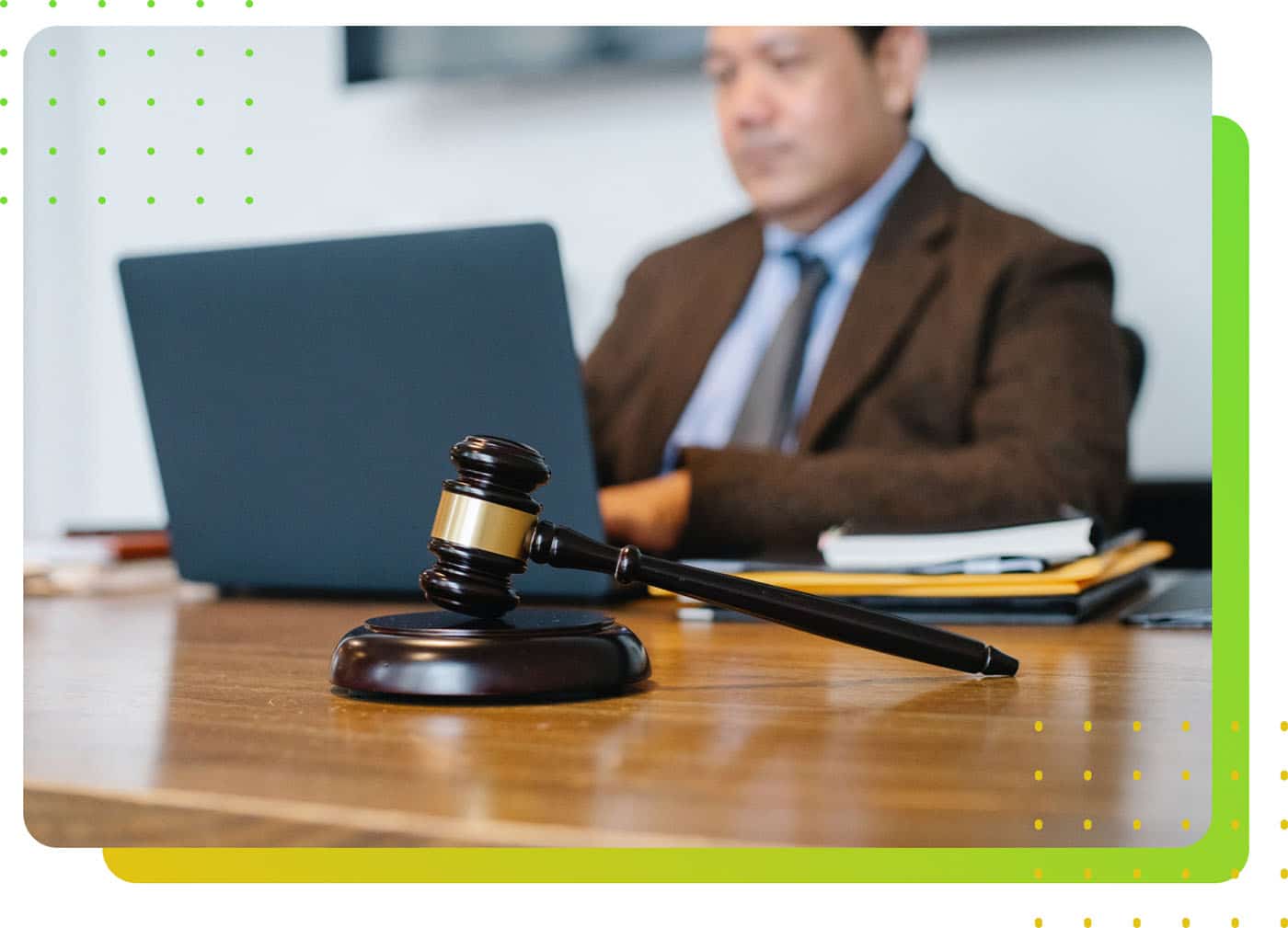
In the past, law firms would send invoices to clients via regular mail and typically receive payment for their services in the same way.
With e billing, law firms utilize the standardized format known as the Legal Electronic Data Exchange Standard (LEDES) to present their invoices. to their clients.
The electronic exchange of data now allows for seamless and secure transfer of invoices and other crucial documents and has really revolutionized the billing process for law firms, allowing for invoices to be paid faster, information to be exchanged faster (and in a more secure manner) and for the entire billing process to flow much more smoothly and with significantly less opportunities for human error to complicate the exchange.
How Does the LEDES Billing Process Work?
The process of LEDES billing begins when a law firm generates an invoice for a client.
Basically, the process usually goes like this:

Step 1: Generate the invoice data
The billing process begins with the law firm compiling all relevant invoice data, including details such as time entries, billable hours, any expenses incurred, disbursements, and matter-related information.
This information is structured and organized according to the LEDES format, ensuring uniformity and consistency.
#2: Transfer all invoice data into the LEDES format: Using your already implemented legal e billing software, the law firm then translates the collected invoice data into the LEDES format.
This format follows standardized codes and fields to represent different components of the invoice, such as timekeeper information, activity codes, task descriptions, rates, and more.
#3: Create the invoice: With the LEDES format in place, the e-billing software generates the actual invoice document. This document contains all the relevant billing data organized according to the LEDES standards.
#4: Submit the invoice: Once the invoice is completely generated and correctly formatted, it is electronically submitted to the client.
Make sure your chosen legal e billing platform offers secure online portals for submitting invoices. This will ensure that all sensitive information is protected, and that the client will receive an accurate invoice electronically for review.
#5: Client reviews the invoice: The client electronically receives their invoice and reviews it for any discrepancies. If the client or the client’s system identifies any issues, a rejection message or an adjustment request is sent to the law firm.
Schedule a demo
#6: Adjustments and/or corrections are made: Upon receiving an adjustment request, the law firm’s billing department revisits the LEDES-formatted invoice. They make any necessary adjustments or corrections based on the client’s feedback and resubmit the revised invoice through the e billing platform.
#7: Invoice is approved and payment is made: Once the client’s billing system validates the revised invoice, it is approved for payment. The client’s accounts payable department processes the payment based on the approved invoice.
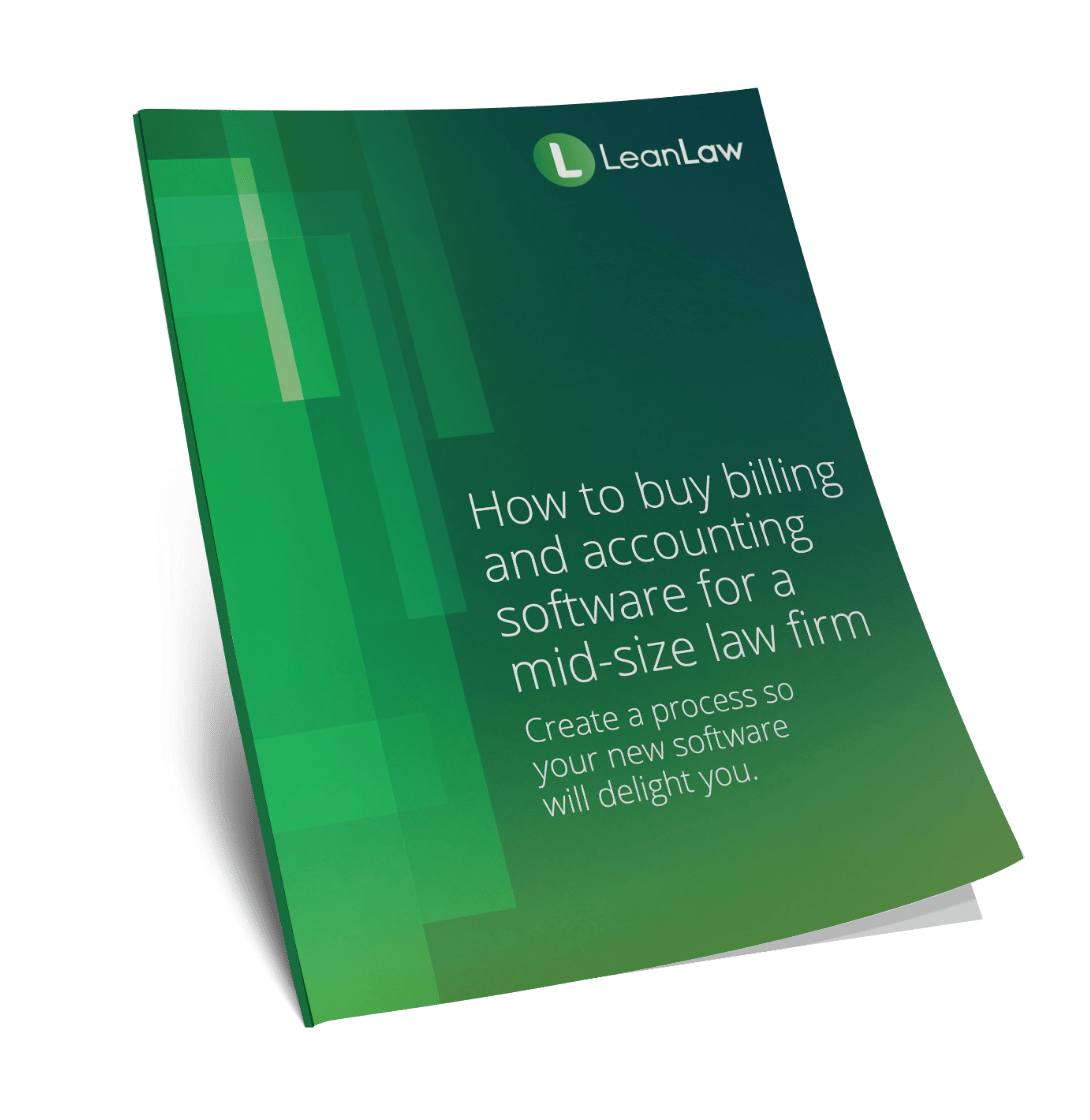
Step-By-Step Process for Attorneys & Law Firmsto Buy Law Firm Software
Understand who needs what and prioritize features as you investigate new software. Download Buyers Guide eBook#8: Any needed recordkeeping and reporting is completed: Throughout this entire process, the e billing software records each step and interaction, creating an audit trail for future reference. This trail is valuable for both the law firm and the client in case of any disputes or inquiries later on.
In essence, the LEDES billing process involves structuring, submitting, reviewing, and approving invoices using a standardized electronic format.
This process of law firm billing works to ensure that the entire invoicing cycle is efficient, accurate, and transparent, and ultimately benefits both the law firm and the client.
What are the Biggest Benefits of Implementing Electronic Billing Software into My Firm’s Tech Stack?
As you can see, LEDES billing can really help streamline the entire invoicing process for both law firms and their clients.
Here are some of the other biggest benefits of electronic billing as well:
Improved Transparency:
Legal e billing enhances transparency between law firms and clients by providing a standardized format for invoicing and billing.
The LEDES format ensures that all billing components, such as time entries, expenses, and rates, are clearly outlined. This transparency reduces the likelihood of billing disputes and fosters trust in the attorney-client relationship.
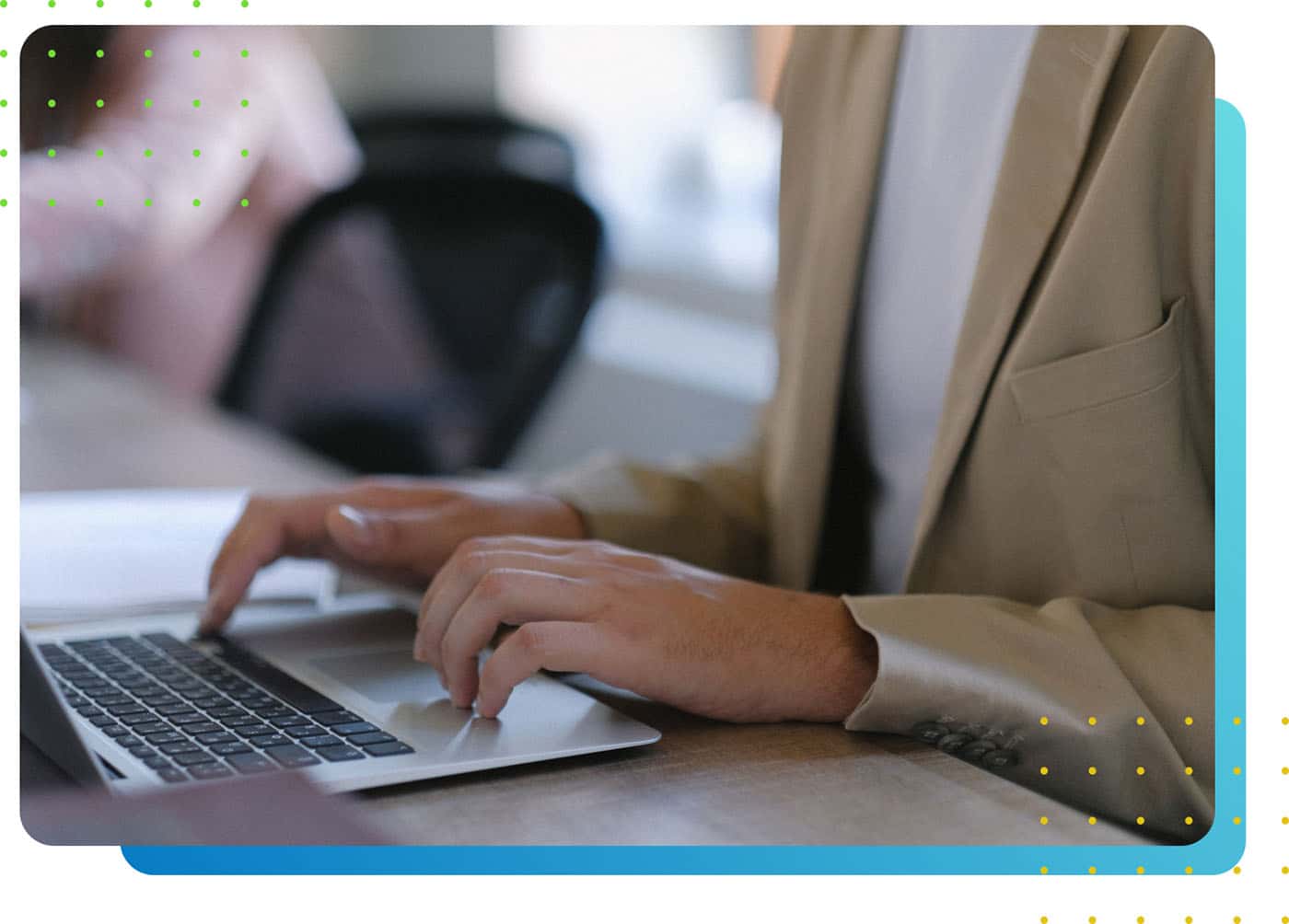
Lower Margin for Error:
Legal e billing software automates the process of translating invoice data into the LEDES format, reducing the chances of manual billing errors in the billing process.
With standardized coding and predefined fields, there’s less room for mistakes in entering billing information. This accuracy minimizes the need for corrections and re-submissions, saving time and resources for both parties.
Faster Payment:
Legal e billing accelerates the payment cycle for legal departments and clients by streamlining the invoice review and approval process.
Automated systems flag any discrepancies or non-compliance with billing guidelines, allowing for quick adjustments to take place. This efficiency leads to faster approval and payment processing, benefiting law firms with improved cash flow while also making the entire process easier for your clients as well.
Schedule a demo
More Convenient for Clients:
Clients appreciate the convenience of receiving standardized invoices in electronic formats that can be easily integrated into their accounting systems.
Good e billing platforms should always provide secure online portals for clients to review, validate, and approve invoices and make online payments. This ease of use enhances client satisfaction and helps build positive relationships between legal professionals and the people they serve.
Less Staff Time:
The automation provided by legal e-billing software significantly reduces the manual effort required in preparing and processing invoices.
With the automated translation of invoice data into LEDES format and streamlined review processes, law firm staff can allocate their time to more value-added tasks rather than administrative billing activities.

Improved Recording and Reporting Abilities:
Legal e billing systems maintain a comprehensive audit trail of all invoice submissions, reviews, adjustments, and approvals.
This detailed recordkeeping enhances accountability and transparency. It also means that the data captured in the e billing system can be used for generating insightful reports (like case-by-case expense tracking and different attorney’s billable hours) and help law firms analyze their billing practices while identifying opportunities for improvement.
Incorporating legal e billing into a law firm’s billing process offers a range of benefits that extend beyond mere automation.
From increasing transparency and accuracy to expediting payments and enhancing client satisfaction, e-billing systems provide a strategic advantage for law firms looking to streamline their financial operations and build stronger relationships with their clients.

Want to Learn More About E Billing Software and How it Can Best Benefit Your Firm?
If you’re looking to explore the world of e billing software and how it can revolutionize your law firm’s billing practices, LeanLaw has the answers you need.
With its commitment to providing innovative solutions tailored to the legal industry, LeanLaw offers an intuitive and robust legal e-billing platform designed to address the unique needs of modern law firms.
From seamless integration with popular accounting software to efficient LEDES formatting and detailed reporting capabilities, LeanLaw empowers your firm to navigate the complex landscape of billing with confidence.
Check out our free demo and begin to discover how LeanLaw can help bring more efficient and effective billing practices to your firm — all while elevating your client’s satisfaction and your firm’s success.



